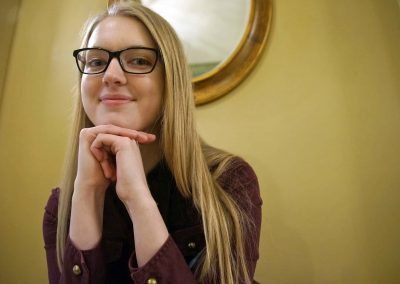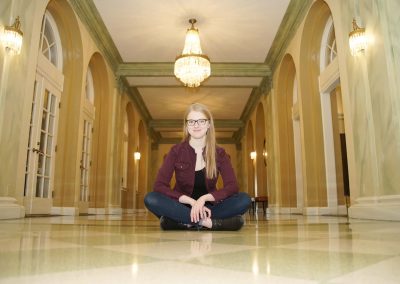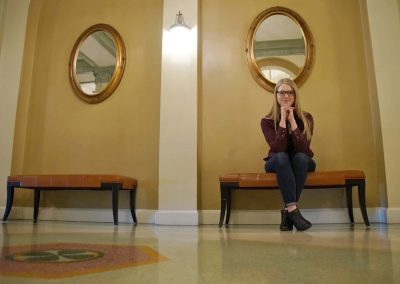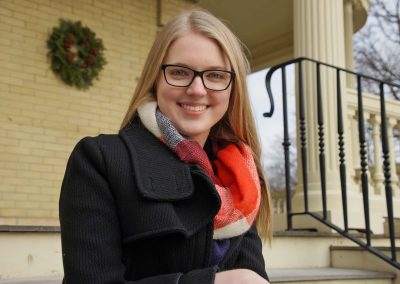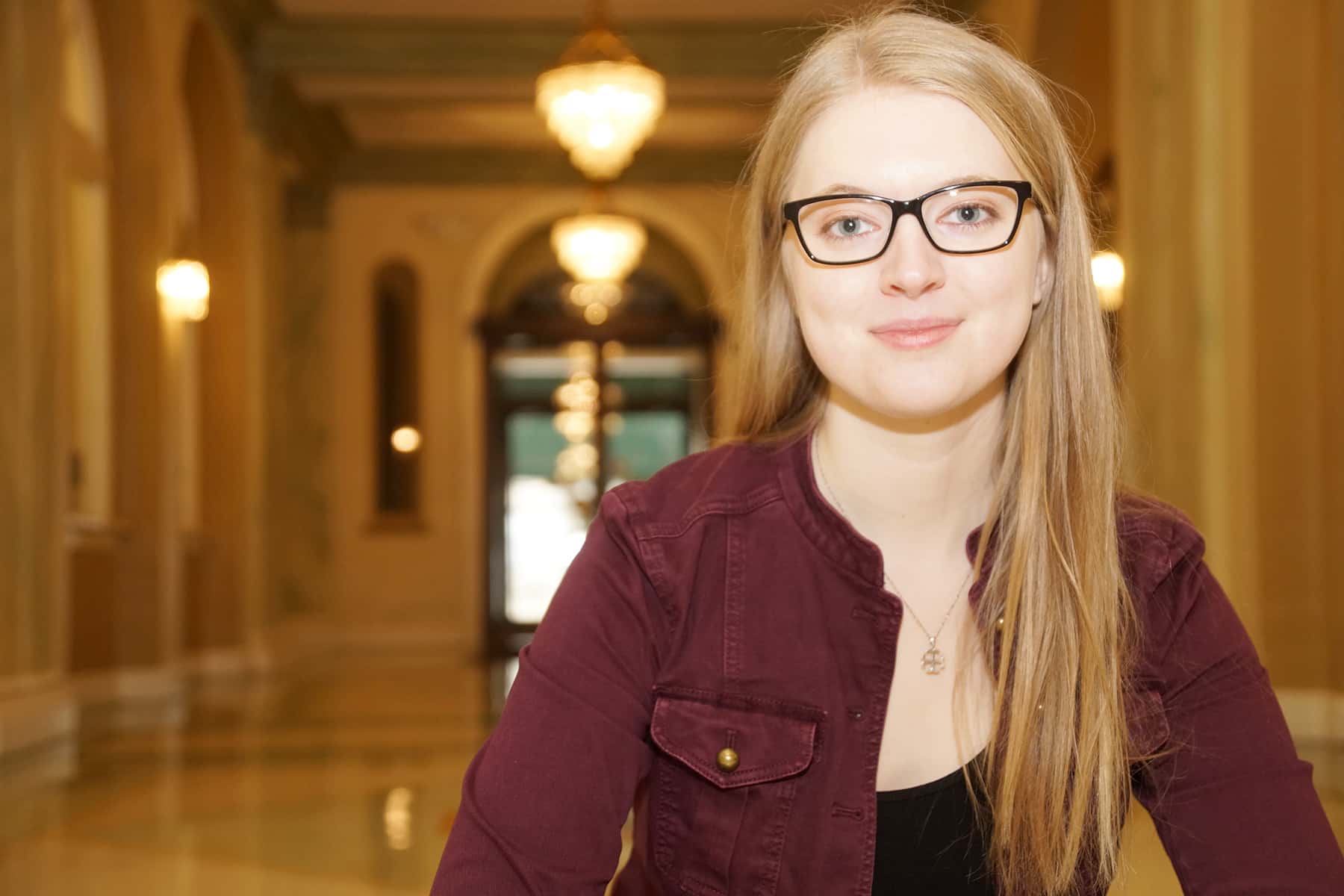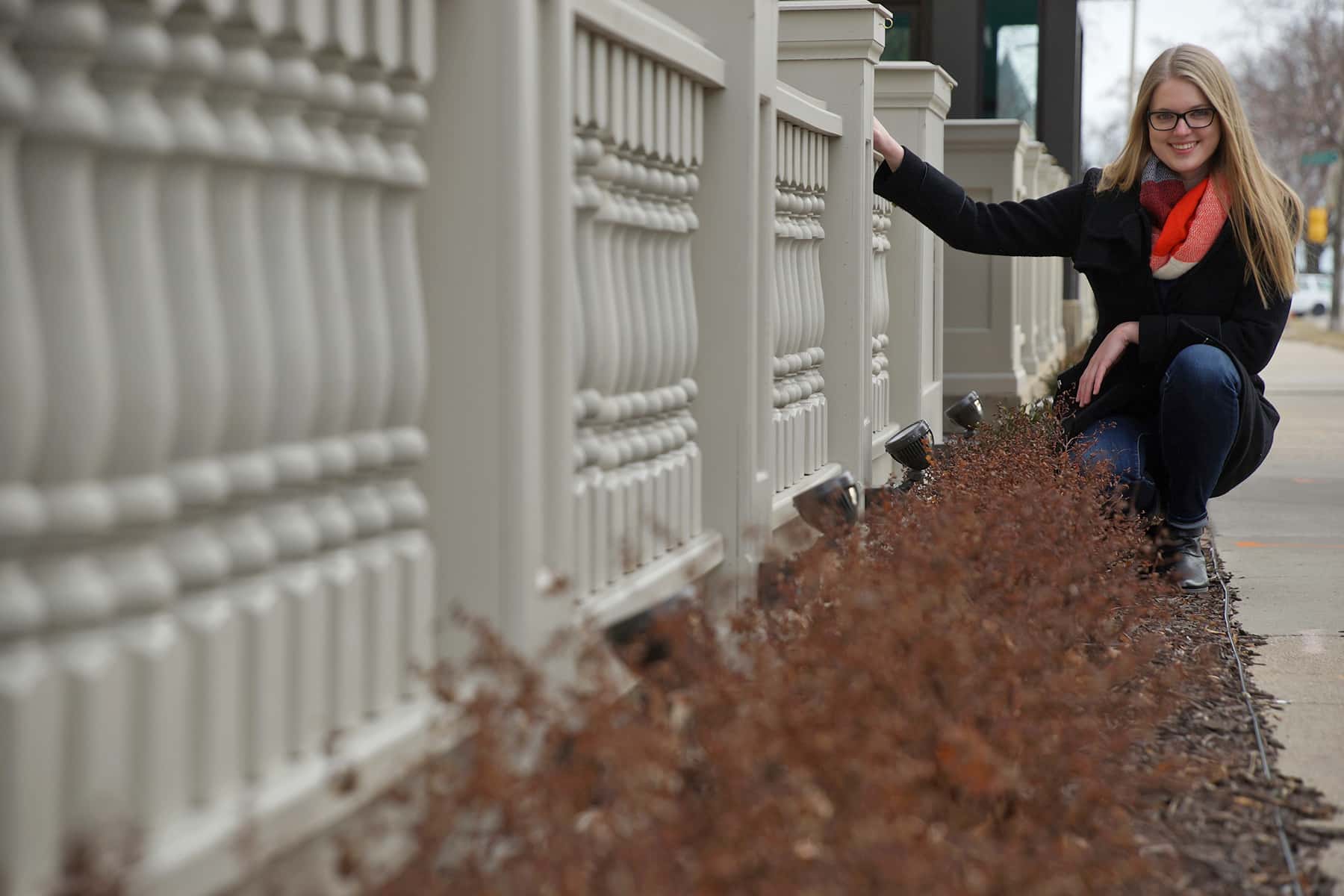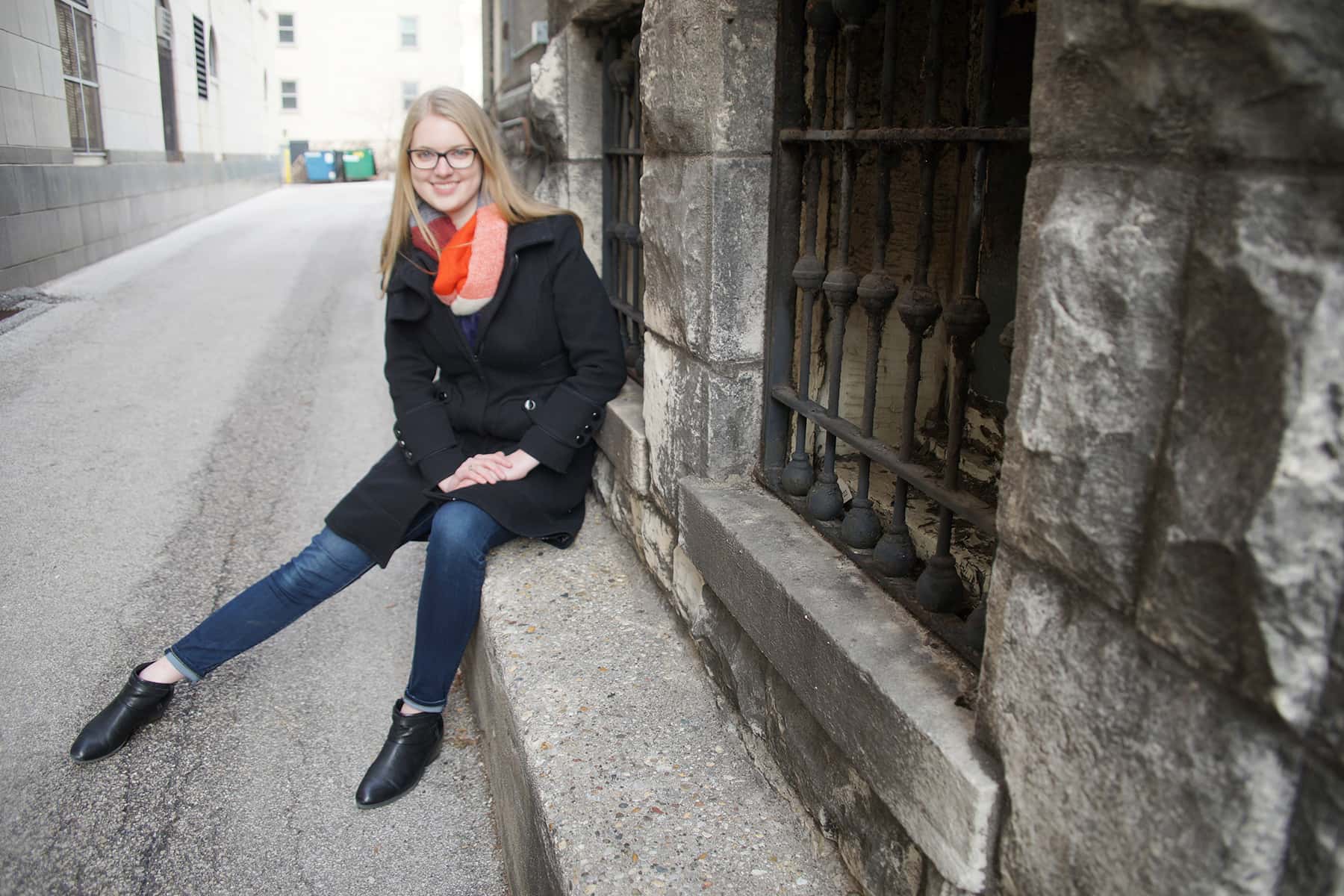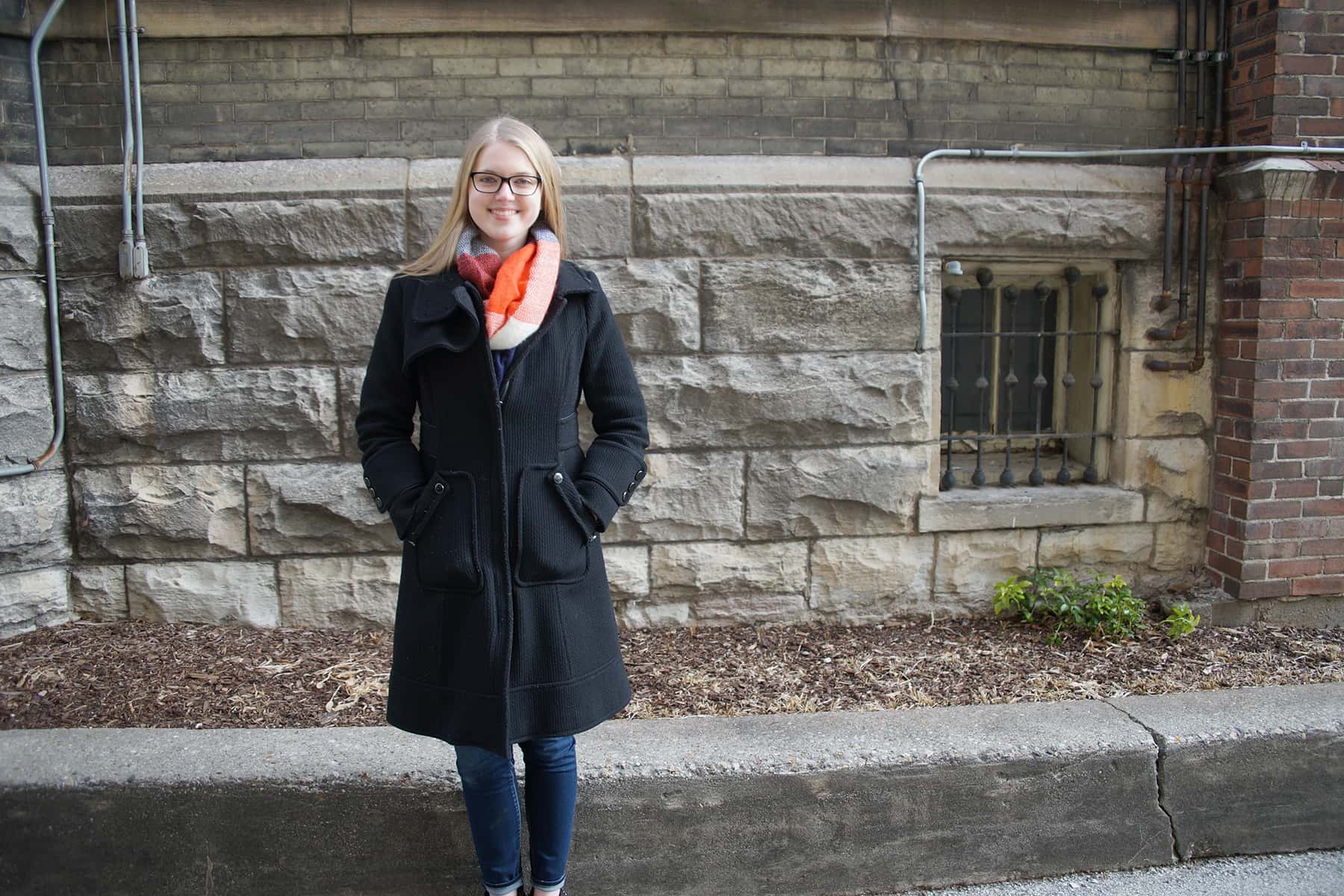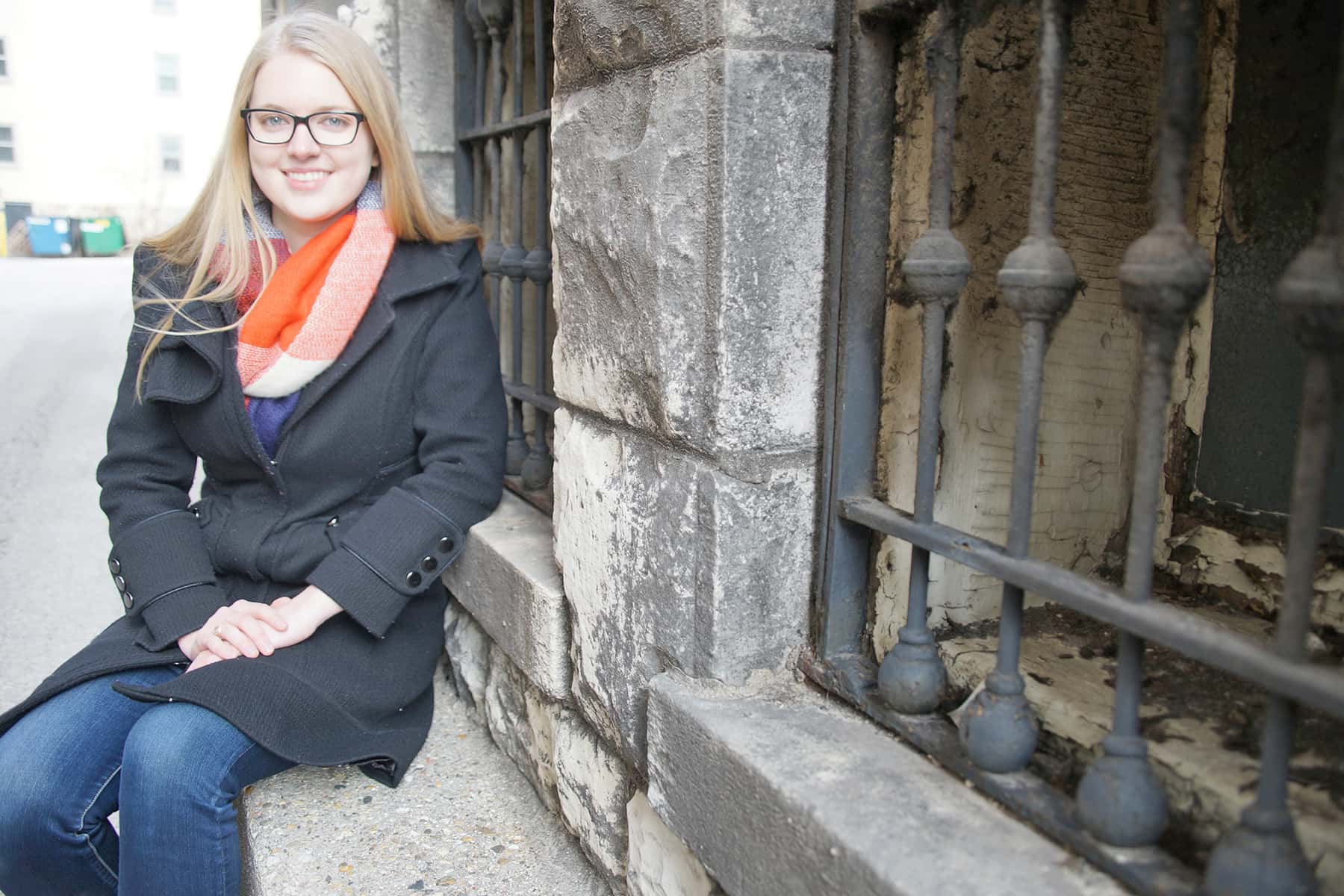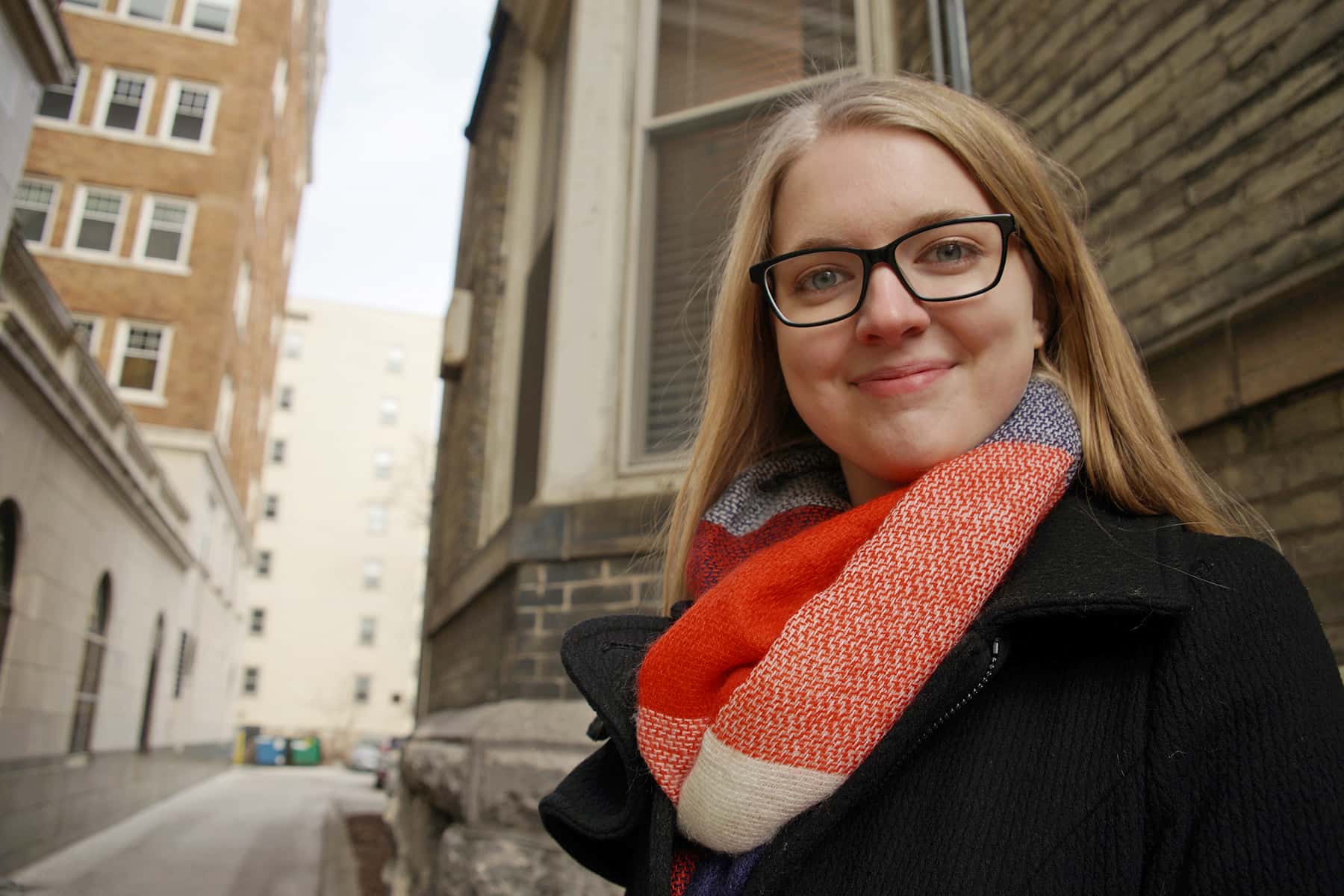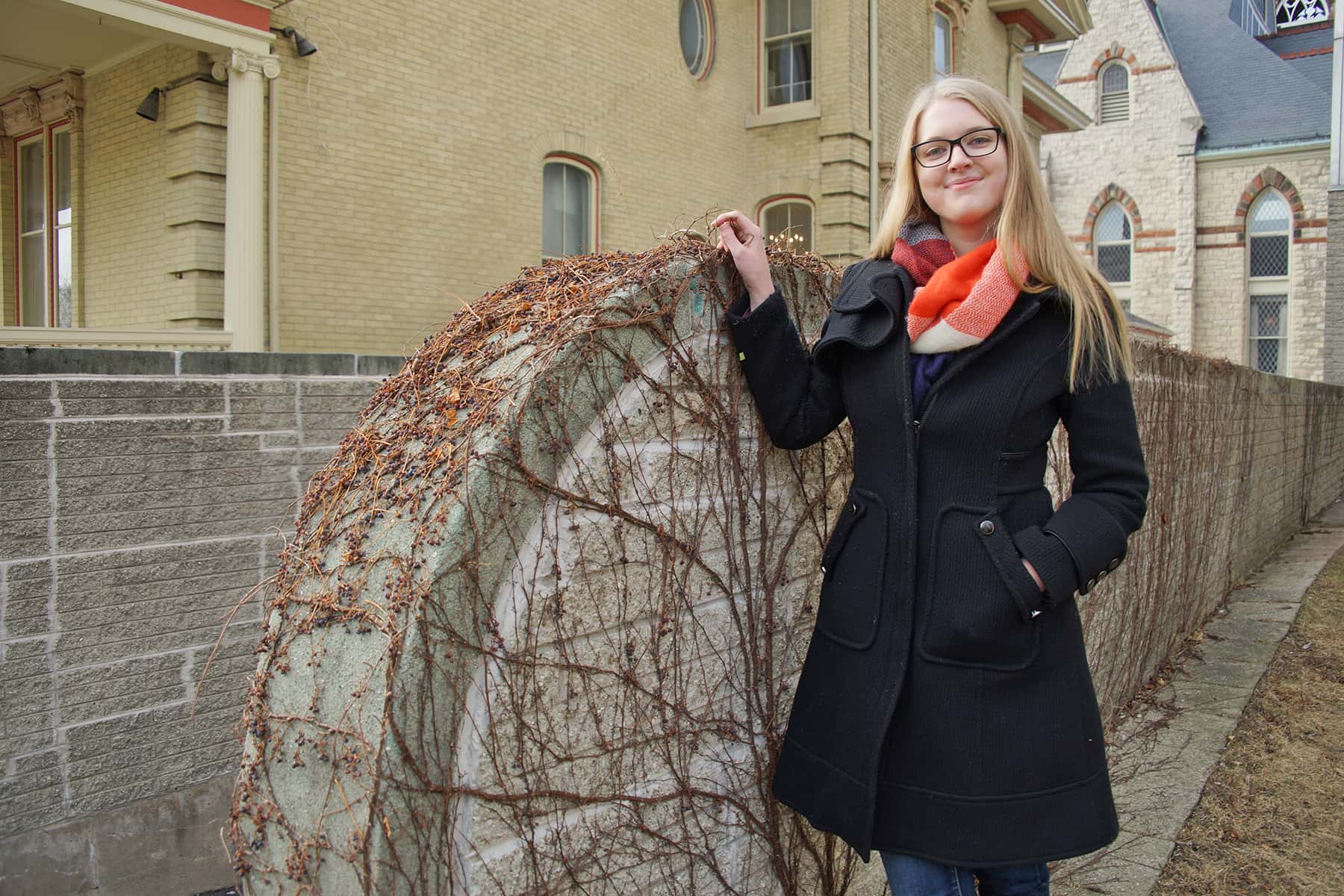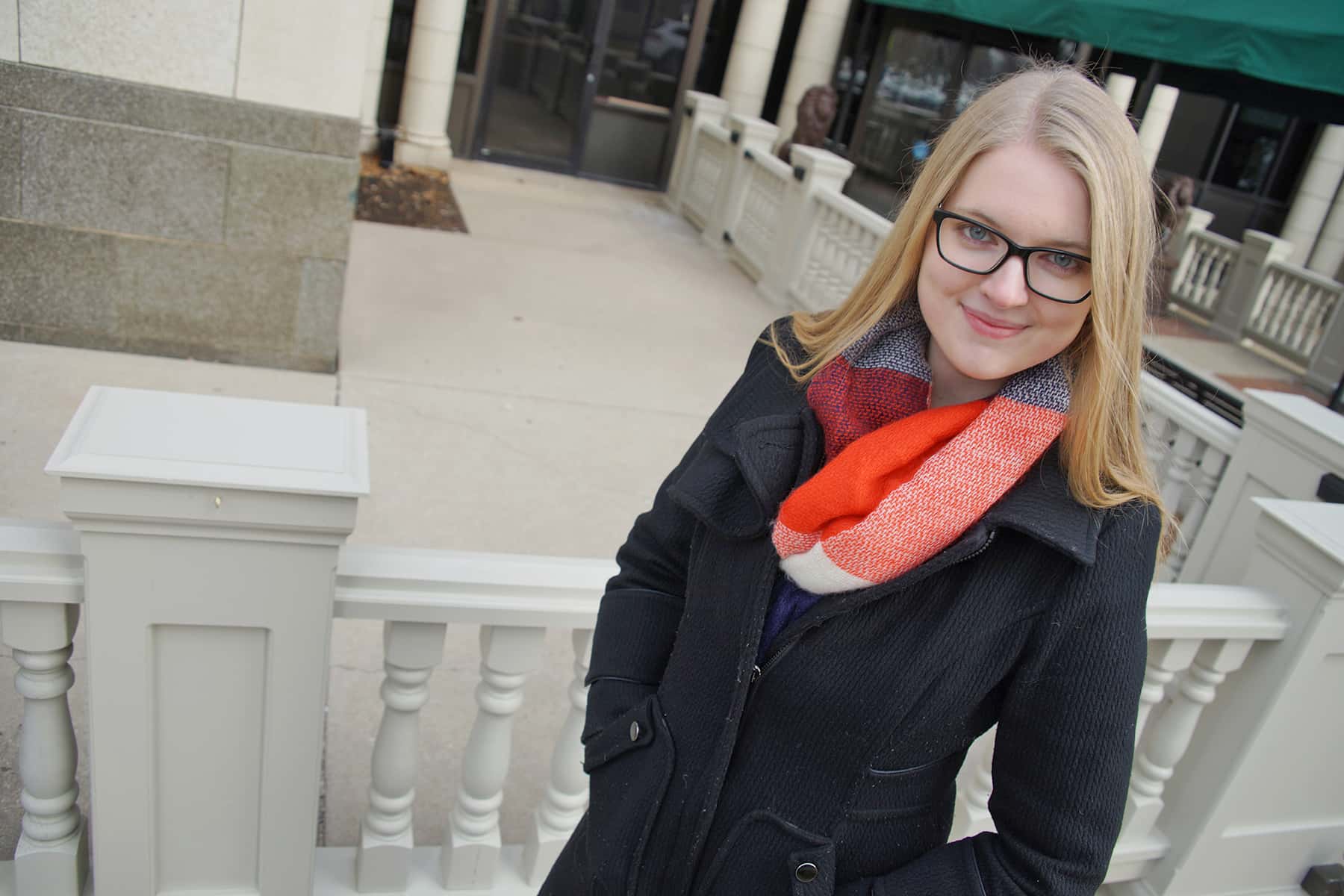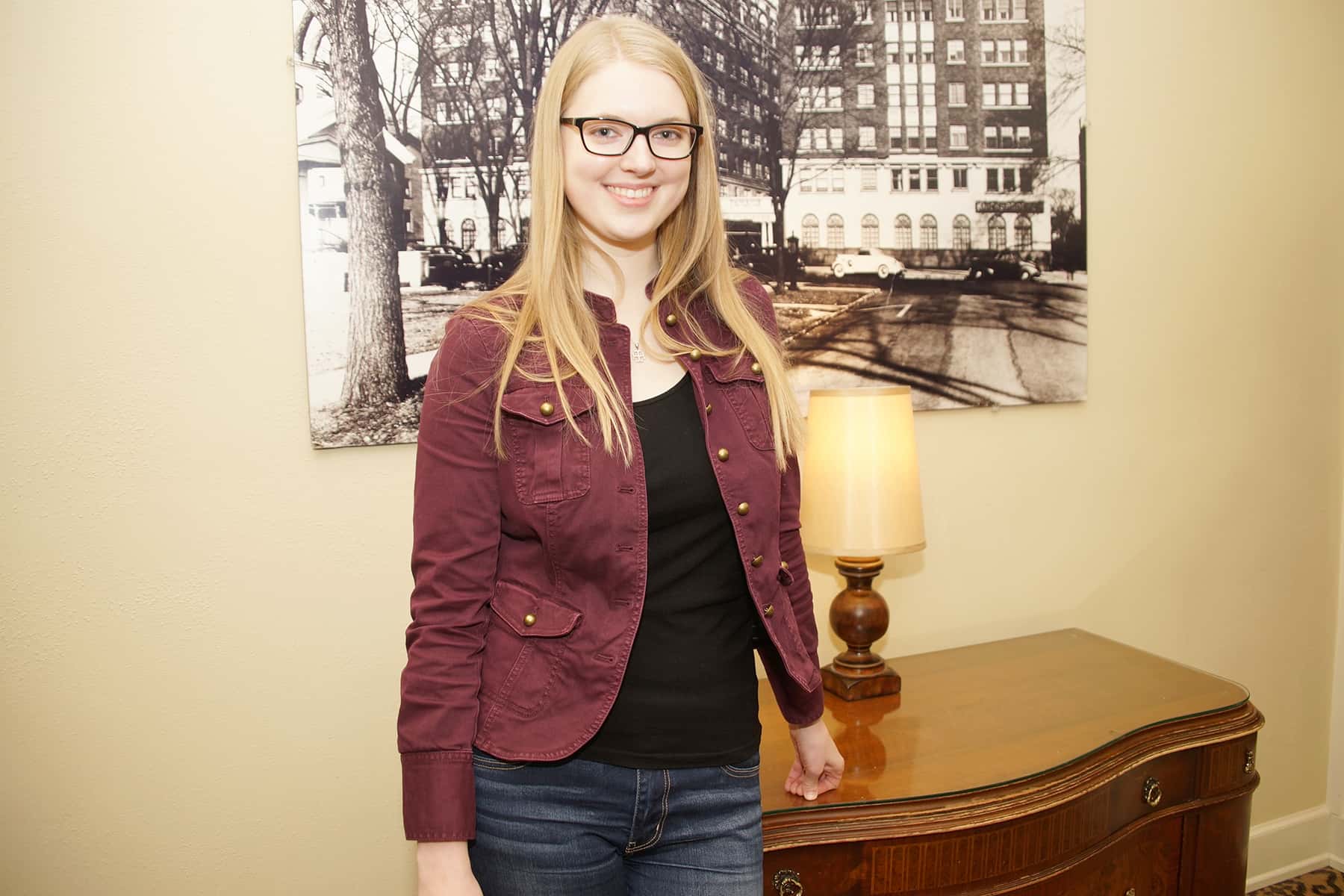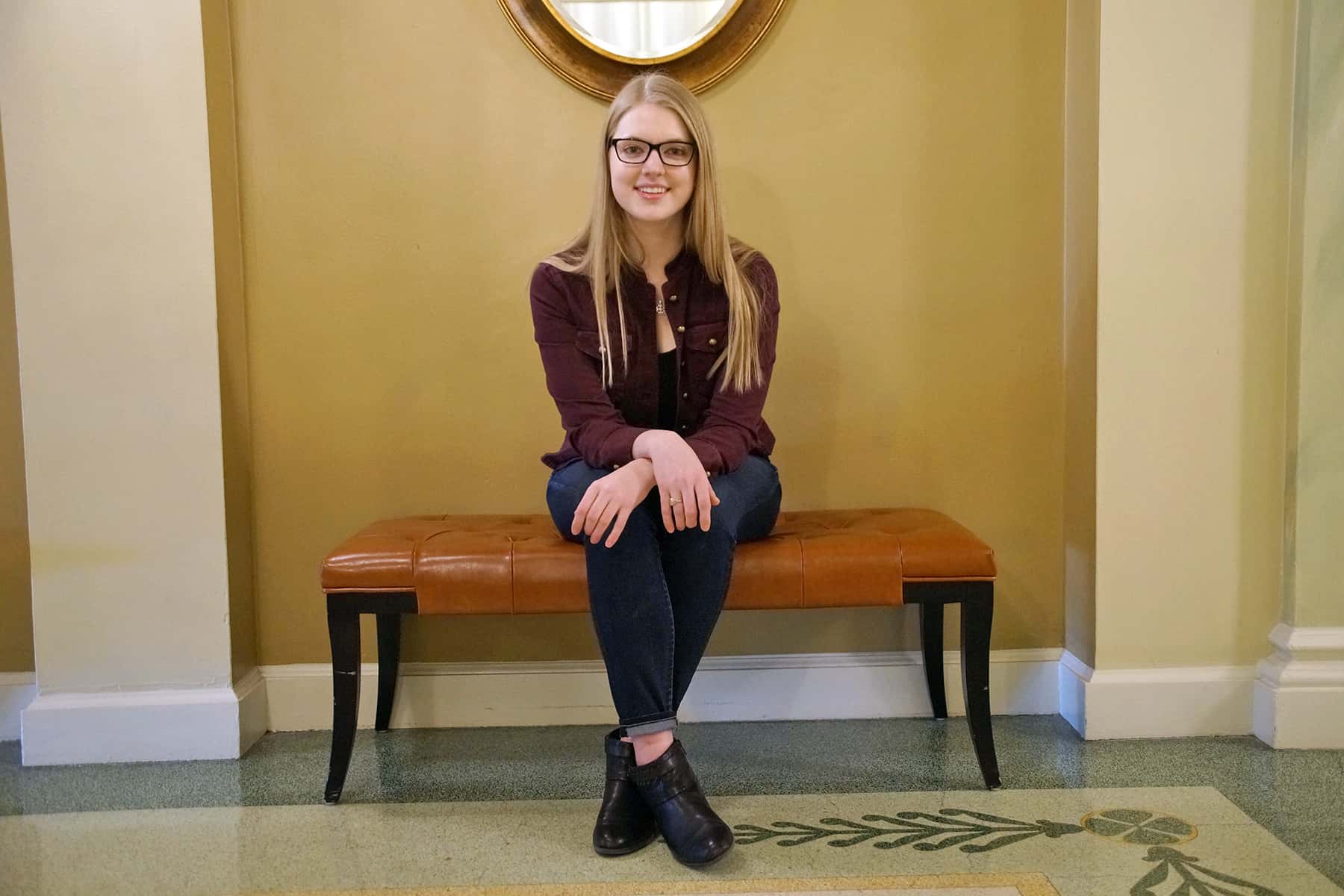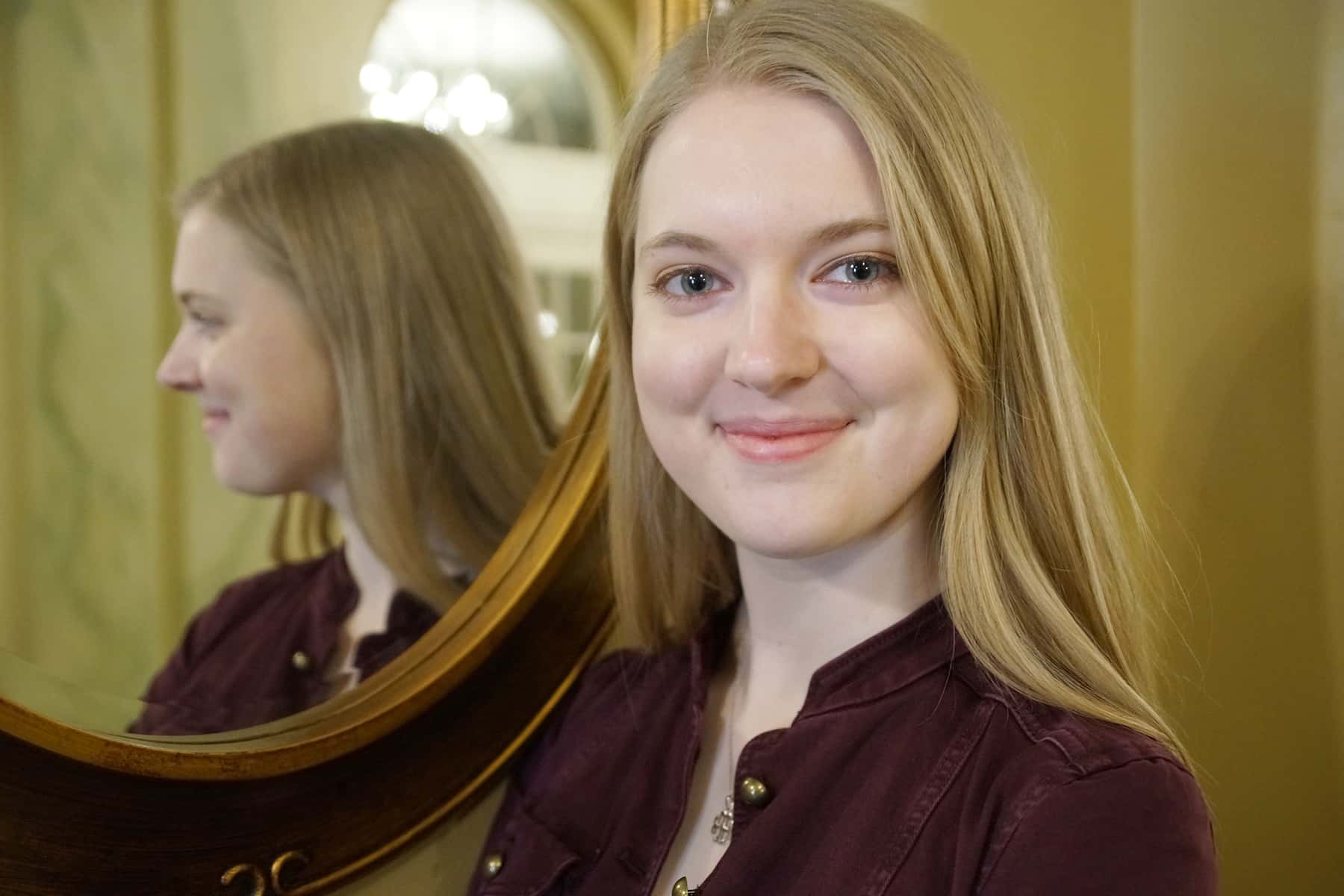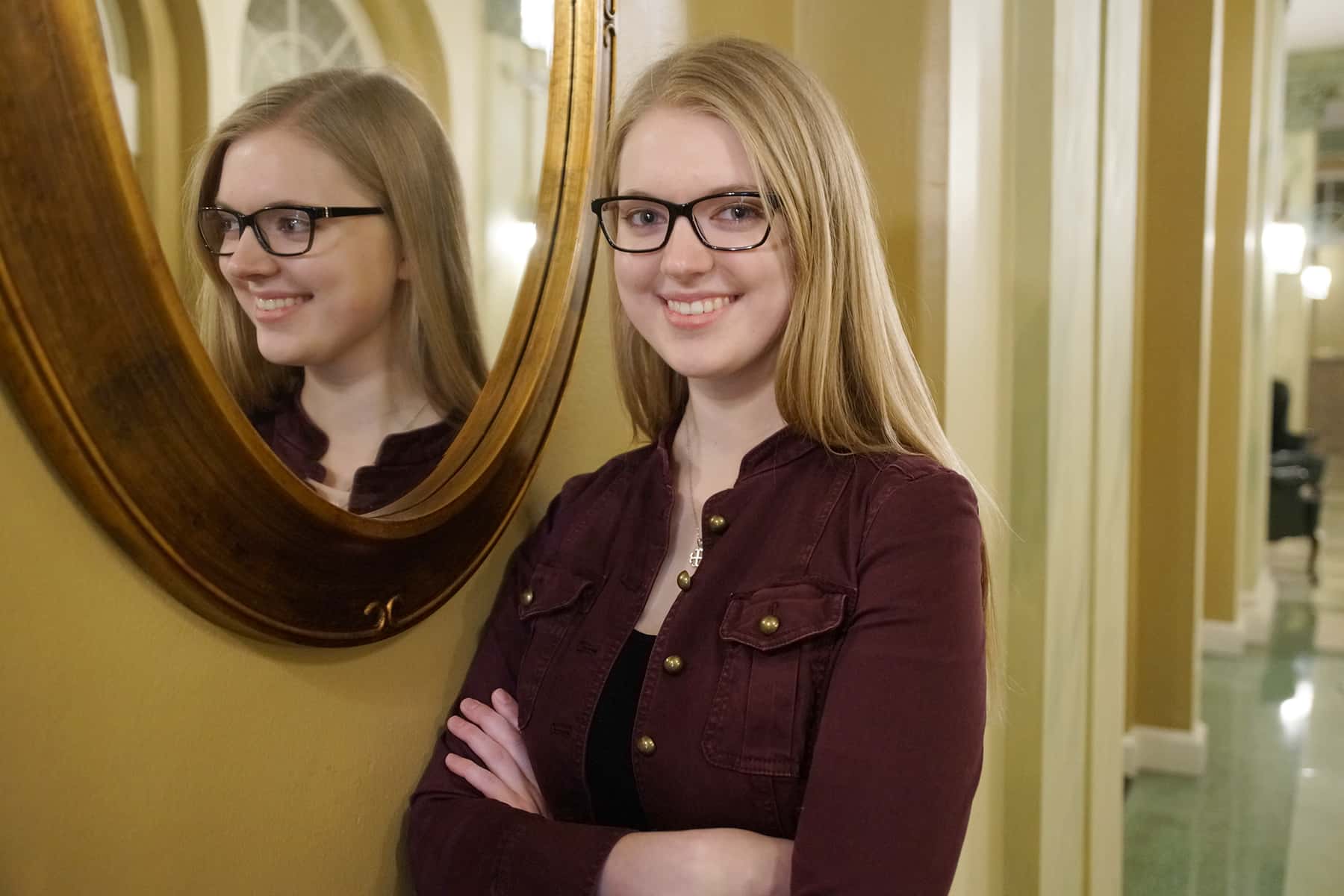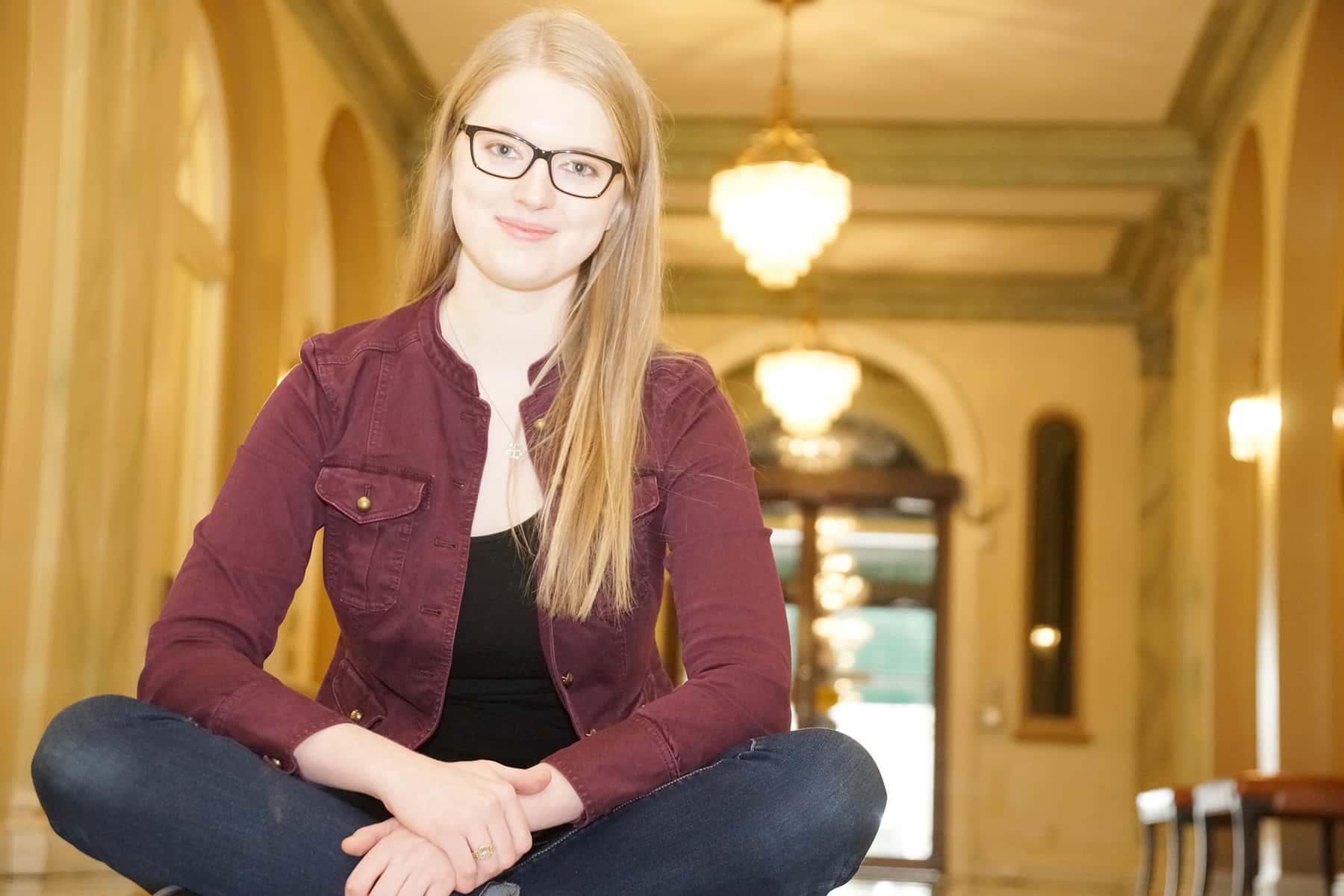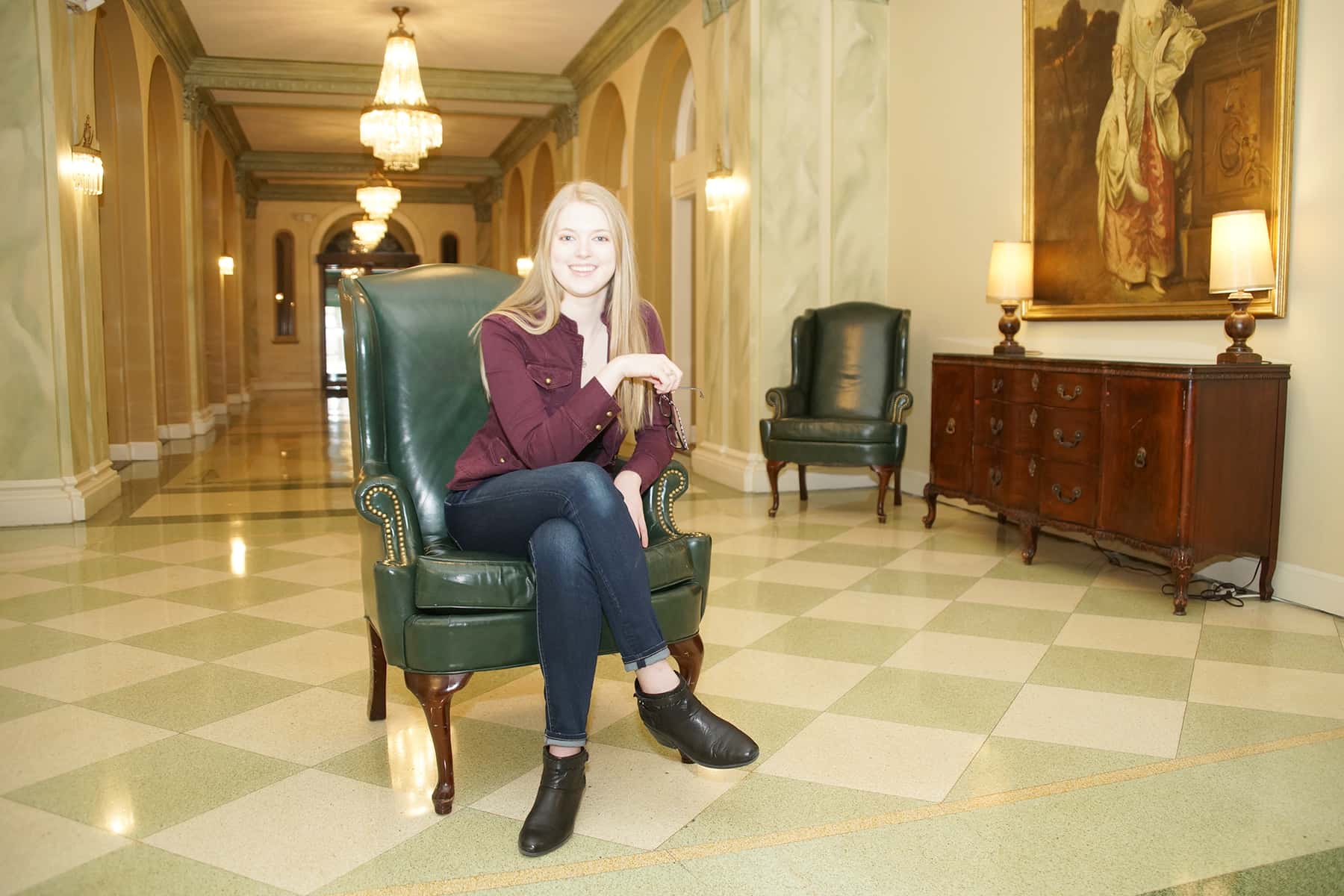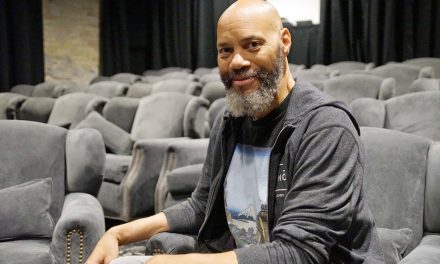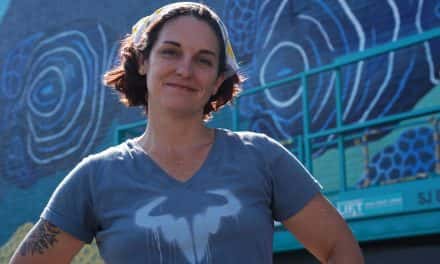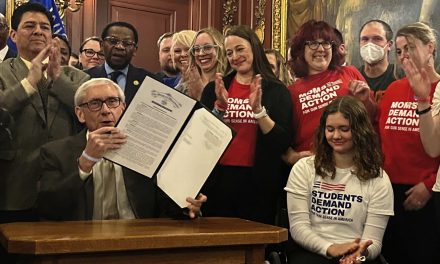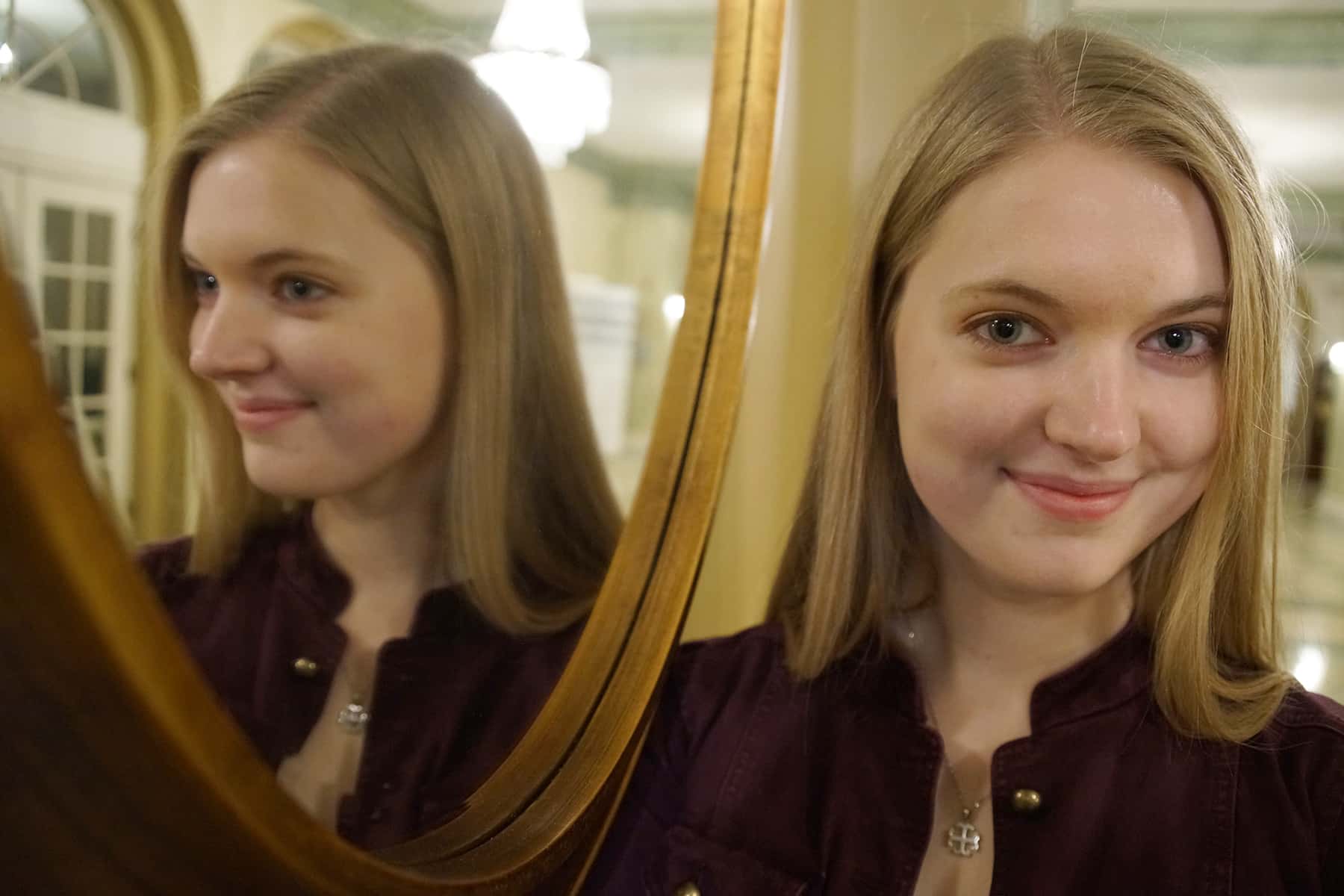
Raised in southeastern Wisconsin and encouraged at a young age to express her creativity in music and theatre, Jennifer Vosters has already earned a respected list of credits for acting, directing, and writing.
A fan of Shakespeare and a self-proclaimed sci-fi geek, her hard work and discipline serves as an example for what young empowered women can accomplish when they experience hope and opportunity. She also shines a light on the healing powers and social connections that result from music and community. Vosters is currently touring with the Utah Shakespeare Festival’s production of Macbeth, and the Milwaukee Independent caught up with her during a brief stop in Milwaukee.
Q&A with Jennifer Vosters
Milwaukee Independent: What is your fondest memory growing up in Milwaukee? And, who was the most influential person during those formative years?
Jennifer Vosters: Some of my fondest Milwaukee memories were weekend trips around town with my dad. The zoo, the public museum, the Pettit Center, and later on the art museum were our regular stomping grounds. Having access to resources like that, I think, instilled in me a sense of curiosity and a love of learning that has impacted me greatly as I’ve grown older. And I was always encouraged to learn.
Milwaukee Independent: How did you originally learn to play the viola instead of starting with the violin, and what does music in general mean to you?
Jennifer Vosters: Well, I’d wanted to play violin since I was quite young, and in third grade I was planning to sign up for orchestra at school and take violin lessons. Then I met my cousin’s then-girlfriend-now-wife, who played the viola, and she told me that there are a lot of opportunities for violists because there just aren’t as many of us. And when I heard the low, mellow tones of the viola, I was more than happy to take her advice. I do play some violin now, but I always try to let people know I’m a violist first and foremost.
The short answer is music means a lot to me. I’ve always loved listening to a wide variety of music – it really sparks my imagination – and playing an instrument for most of my life has been a great privilege. It’s an important conduit of expression, emotion, and beauty for me, and it’s also been a great unifying force in my life: it’s brought me some wonderful opportunities, from playing with my high school orchestra at Carnegie Hall to a gig at the Utah Shakespeare Festival, and it’s also led me to some remarkable people. It’s hard not to be friends with someone you make music with. We should put world leaders in a band together and see what kind of progress we’d make.
Milwaukee Independent: What was the reaction to your creative talent in high school? Was it as misunderstood as much as it was encouraged?
Jennifer Vosters: I was fortunate to have classes and extracurriculars that taught me a lot about the fields I was interested in, and introduced me to other students who loved the arts. I was very involved with the forensics team at Brookfield East, and the student newspaper; I did the fall musical every year; and I took choir and/or orchestra classes each semester. My parents encouraged and supported my involvement in these activities, and I had a wonderful group of friends who were as excited by them as I was. If people misunderstood my interest in the arts, they were at least kind enough not to try and stop me. The only real lack of encouragement I felt was when funding for arts programs was cut. It was hard not to feel discouraged when more and more resources went to athletics, but budgets were regularly scaled back for the activities my friends and I cared so much about.
Milwaukee Independent: Has being creative ever been a burden? And, what is the biggest joy you get from artistic work?
Jennifer Vosters: My doubts and insecurities are burdens, but “creativity” – which I’d define as a love and proclivity for creating from one’s imagination – is never a burden. I can get very worried about what other people are doing and how I compare, which is unproductive and unfair. But whatever creativity is in me has never been the problem. It’s only when I get in my own way.
The biggest joy I get from artistic work is sharing it with other people. Making art is about the process, of course, but it’s also about the product, and being able to offer that product up for other people to see, evaluate, and hopefully enjoy. I love having lots of people experience something I’m proud to be part of. And, I love working with other people to create things I’m passionate about. Theatre, music, and writing all bend toward collaboration and community.
Milwaukee Independent: What is the most challenging aspect of performing in a Shakespeare play? And, what is the most rewarding attribute?
Jennifer Vosters: I think what’s most challenging is also what’s most rewarding: the language. It is beautiful, it is complex and complicated, it is evocative and powerful and larger than life – which is why it speaks to everyone, when performed well. Tackling the language isn’t just a mental exercise, though; it is a very physical undertaking that requires the full body’s participation: all the mechanisms of breath, posture, firm footing, and expression. Shakespeare provides a lifelong journey of learning, and I love the challenge.
Milwaukee Independent: Can you briefly describe what appeals to you about each of the artistic forms you are involved with, from music to stage directing?
Jennifer Vosters: I’ve loved stories my whole life, and each of the art forms I’ve participated in has been in an effort to interact with stories more. I love writing because it is an act of pure imagination and creation, and though it is solitary for a large part of the process, it is also meant to be shared with others. I love acting because it allows me to feel like I’m actually in the story, inside one character, living in an imaginary world and engaging with others in that world – essentially playing pretend, which I’ve always loved to do, but now doing it with more meaning and depth. Directing brings the writing brain and acting brain together; it requires the large-scale storytelling and in-depth nuance of a writer plus the physical practicality and energy of an actor. But it’s also the hardest for me, because the director’s job is to eventually surrender control of the story to her team. Writers and actors stay in control of their work longer.
Milwaukee Independent: What was the biggest lesson you learned from directing your first stage play? And, what has working in all aspects of theatre taught you about yourself?
Jennifer Vosters: Getting the right people in the room is at least half of a director’s job. I didn’t know going into the show how much I was going to lean on some of my teammates for help and advice, and I was so glad to have them rolling up their sleeves with me. It’s very important to choose not only talented people but reliable people, hardworking people, and resourceful people. Because you will inevitably run into sticky spots that you didn’t expect, and the people in your cast and on your design team are the ones who are going to get you out of them.
What has theatre not taught me about myself? It’s an inherently revelatory practice. One of the biggest things theatre continues to teach me is to know myself, even the parts that I don’t exactly like: my needs, my limits, my blind spots, my weaknesses. I learn a lot about myself through the stories I’m part of telling, but even more so through the less glamorous parts of the business: meeting and working with new people, finding the next job, trying to figure out how to do my work better and hone my unique voice. It’s constant reflection and constant discovery, and I like to think it’s made me more aware and more mature.
Milwaukee Independent: What is your dream artistic project to work on and why?
Jennifer Vosters: I’d really like to create a one-woman show. I have some ideas. I’d like to make them a reality. The process would bring all three arenas I love – writing, directing, acting – together. And it would give me the freedom to write about something that thrills me.
Milwaukee Independent: Considering how the arts flourish in other cities, what keeps you here in Milwaukee? And, what gives you hope for the city’s creative future?
Jennifer Vosters: I love Milwaukee as a city, and I’ve come to appreciate it a lot more as I’ve grown older. It’s true that it is hard to be based here as a young theatre artist, mainly because it’s smaller than the big hubs like Chicago and New York; I travel a lot for theatre jobs outside of Milwaukee. But there’s wonderful work being done here by remarkable, talented people. Kind people. Community-oriented people. And there are some very exciting things happening in the Milwaukee theatre world: new companies being born, established companies taking on new projects, more women in leadership, new stories being brought to light. I want to be part of the work that’s being done here and the community that’s making it happen.
Milwaukee Independent: What led to you direct the stage play “Medea,” and did the production fulfill your expectations?
Jennifer Vosters: I read Medea in college and was spellbound. It is such a rich piece of theatre and literature, and I realized I had specific ideas about what I would want to see in a production of Medea. Then it dawned on me that I couldn’t sit around waiting for some other director to put my vision onstage; if I wanted to see it, I was going to have to do it myself. I wasn’t ready, but I didn’t think I would ever be, so I just took a deep breath and gave it my best shot.
Some expectations were met, some were exceeded, and some were not. I think I expected to have more answers going in and more tools in my tool belt: skills, experiences, and such, that would help me be a better director. But even once I realized I didn’t have all those things, I was and am profoundly grateful for the opportunity to learn as much as I did. I had the chance to work with some dedicated, delightful teammates whose devotion to a project I cared so deeply about was humbling, to say the least. But I know I have more to learn, and as an early-career director I want my next project to be even better. And I think it will be, because of the tools that Medea gave me.
Milwaukee Independent: If you could send a message the year 2040 to a future version of yourself, what would you ask the older you?
Jennifer Vosters: “Have aliens made contact yet?” (Just kidding.) I’d probably ask her: “What is still on your bucket list, and what are you going to do to achieve it?”
Milwaukee Independent: What would you say for encouragement to young women in Milwaukee who are interested in acting, about following their dream?
Jennifer Vosters: Relationships are probably the most important thing for a sustainable career in the arts. Surround yourself with people you admire and really get to know them. It’s not just about asking for things; it’s about forging genuine connections and putting in the time and work to maintain them. The more people you know – and whose work you know – the more resources you have to motivate and enable you to become better at your craft. So if you want to be an actor, see as many people’s work as you can, and if you spot someone doing what you want to do, reach out. Send them an email, invite them to coffee, try to get to know them as a person as well as an artist. The best and happiest artists know it’s not actually a competition after all; it’s all about collaboration. Get comfortable looking up to other people. Get comfortable approaching things as a team. Be okay with not being the best, and instead of resenting those who are, ask them for advice.
And do not neglect relationships with people outside the industry. Remember that you are more than your art form, even though it often feels like the most important part of your identity. Stay grounded, and stay well-rounded. Nurturing the friendships with people who are not in the arts has given me much-needed perspective. My friends and family have also kept me interested in and exposed to other things that give so much more meaning to the rest of my life, including my art.

